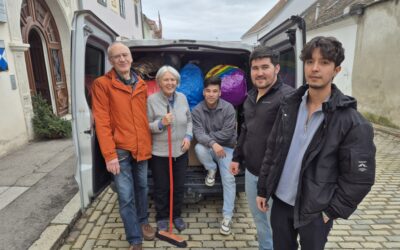 “In face of such extreme specialization and advancement in technology which have reduced medicine to the mere biophysical dimension of man, we evidenced the precedence of the spiritual dimension and the stringent correlation between environment, socioeconomic conditions and health. Reducing the gap between rich and poor, and giving incentives to solidarity, also mean reducing diseases and costs of healthcare.” This was the conviction of Dr Flavia Caretta, President of the International Medicine Dialogue Communion Association, who illustrated the general health project for the integral health of the human person at the Symposium, “Integral health – challenges and priorities in Latin America,” promoted by Associação Paulista de Medicina (APM) and the Brazilian Association, “Saude, Dialogo, Comunhão”, a network of Healthcare operators who draw inspiration from the Focolari Movement’s spirituality of unity. It is a burning issue, as seen in the recent Brazilian protests against the cuts in healthcare and use of public funds for the soccer world championships of April 2014, part of the long wave of protests last year where thousands took the streets to denounce the alarming state of the malfunctions of the country’s healthcare system. Doctors, university professors, students and various healthcare operators from all over Brazil took part in this event held in Sao Paolo (Brazil), with participants also coming from Argentina, Uruguay, Paraguay and Chile, who all discussed this great issue of the integral health of the person. Another strategic point highlighted was the so-called “revolution” of patients who, from passive entities, are called to become active players of care, in partnership with the doctors. In addition, the congress stressed the responsibility of citizens, called to become associate members of the Brazilian Healthcare System (SUS) itself.
“In face of such extreme specialization and advancement in technology which have reduced medicine to the mere biophysical dimension of man, we evidenced the precedence of the spiritual dimension and the stringent correlation between environment, socioeconomic conditions and health. Reducing the gap between rich and poor, and giving incentives to solidarity, also mean reducing diseases and costs of healthcare.” This was the conviction of Dr Flavia Caretta, President of the International Medicine Dialogue Communion Association, who illustrated the general health project for the integral health of the human person at the Symposium, “Integral health – challenges and priorities in Latin America,” promoted by Associação Paulista de Medicina (APM) and the Brazilian Association, “Saude, Dialogo, Comunhão”, a network of Healthcare operators who draw inspiration from the Focolari Movement’s spirituality of unity. It is a burning issue, as seen in the recent Brazilian protests against the cuts in healthcare and use of public funds for the soccer world championships of April 2014, part of the long wave of protests last year where thousands took the streets to denounce the alarming state of the malfunctions of the country’s healthcare system. Doctors, university professors, students and various healthcare operators from all over Brazil took part in this event held in Sao Paolo (Brazil), with participants also coming from Argentina, Uruguay, Paraguay and Chile, who all discussed this great issue of the integral health of the person. Another strategic point highlighted was the so-called “revolution” of patients who, from passive entities, are called to become active players of care, in partnership with the doctors. In addition, the congress stressed the responsibility of citizens, called to become associate members of the Brazilian Healthcare System (SUS) itself.  This lively debate led to the creation of an extensive project that may help to outline a healthcare policy model as a concrete answer to the expectations not only in Brazil but also in other Latin American Countries. A model of integrated health – according to Dr. Ruy Tanigawa, member of the Regional Council of Medicine of the State of Sao Paolo – “because of its social importance, is destined to spread.” This was the commitment undertaken by the participants at the closing of the event, who consolidated and widened the network of cooperation at regional and national levels, opening out also to Latin American and international entities.
This lively debate led to the creation of an extensive project that may help to outline a healthcare policy model as a concrete answer to the expectations not only in Brazil but also in other Latin American Countries. A model of integrated health – according to Dr. Ruy Tanigawa, member of the Regional Council of Medicine of the State of Sao Paolo – “because of its social importance, is destined to spread.” This was the commitment undertaken by the participants at the closing of the event, who consolidated and widened the network of cooperation at regional and national levels, opening out also to Latin American and international entities.
Want the good of others
Want the good of others




0 Comments